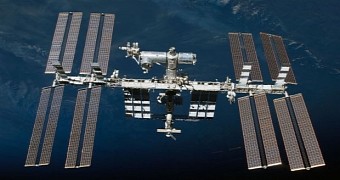This past Saturday, Igor Komarov, the current chief of Roscosmos, announced that Russia and NASA would work together to build and launch a brand new space station.
The announcement was made during a conference held at the Baikonur Cosmodrome in Kazakhstan, following the successful departure of NASA's Scott Kelly and Roscosmos' Mikhail Kornienko and Gennady Padalka to the space station currently orbiting our planet.
“We have agreed that Roscosmos and NASA will be working together on the program of a future space station,” Igor Komarov reportedly told the press, as cited by RT.
The Roscosmos chief did not disclose any information about where this new space station would be designed and built, or about when we should expect to witness it being launched into Earth's orbit.
He did, however, mention that other space agencies would be more than welcome to join the team and work closely with NASA and Roscosmos to build a replacement for the International Space Station, scheduled to cease operating in 2024.
And now the bad news: NASA is yet to confirm these plans
Roscosmos' Igor Komarov might be convinced that NASA and Russia are to work together on building a new space station, but as it turns out, NASA isn't so sure about it.
The US agency is yet to confirm or blatantly deny Igor Komarov's headline-grabbing announcement, which, truth be told, makes the entire affair a wee embarrassing for Roscosmos and Russia.
Thus, NASA has until now only confirmed that Russia is to continue being involved in operations aboard the International Space Station until 2024 and that it would not mind having Roscosmos help it launch a Mars mission sometime in the 2030s.
“We are pleased Roscomos wants to continue full use of the International Space Station through 2024,” NASA spokesperson David Weaver said in a statement, as cited by Engadget.
How and why Roscosmos' Igor Komarov ended up convinced that NASA and Russia would join hands and resources to build a new space station remains a mystery.

 14 DAY TRIAL //
14 DAY TRIAL //